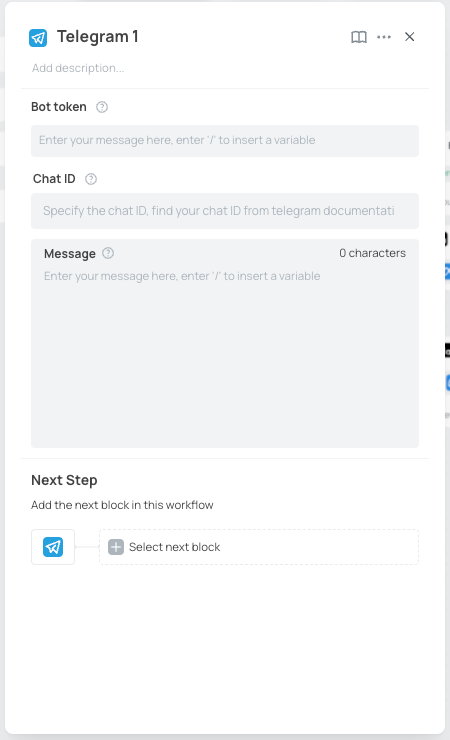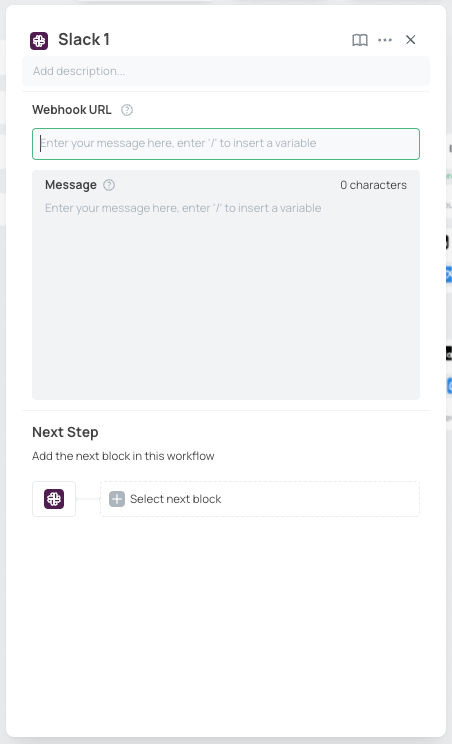Messaging Building Block
The Messaging building blocks enable seamless communication and updates in workflows by sending custom messages or notifications through popular platforms like Telegram and Slack. These blocks allow you to keep team members informed or trigger external processes based on workflow actions.
1. Telegram Block
Send messages to a specific Telegram chat using a bot. Ideal for sending updates, alerts, or status changes during workflow execution.
Key Features:
- Customizable message content.
- Integration via bot tokens for secure communication.
- Real-time updates to Telegram chats or groups.
Configuration Parameters
| Configuration Parameter | Configuration Instructions |
|---|---|
| Bot Token | Enter the token for the Telegram bot. Obtain this by creating a bot through the BotFather on Telegram. |
| Chat ID | Specify the chat or group ID where the message should be sent. You can find this ID using tools like getUpdates in the Telegram API. |
| Message | The content of the message to send. You can use variables from previous blocks by typing / to insert dynamic values. |
Output Variable
- status: (String): Indicates whether the message was successfully sent.

2. Slack Block
Send messages to a Slack channel using an incoming webhook. Useful for sharing updates, logging events, or notifying teams during workflow execution.
Key Features:
- Integration with Slack’s webhook mechanism.
- Support for dynamic message content.
- Lightweight and straightforward setup.
Configuration Parameters
| Configuration Parameter | Configuration Instructions |
|---|---|
| Webhook URL | Enter the URL of the incoming webhook for the Slack workspace. Obtain this by configuring an app in your Slack workspace. |
| Message | The content of the message to send. You can include variables from previous blocks by typing / to insert dynamic values. |
Output Variable
- status: (String): Indicates whether the message was successfully sent.
